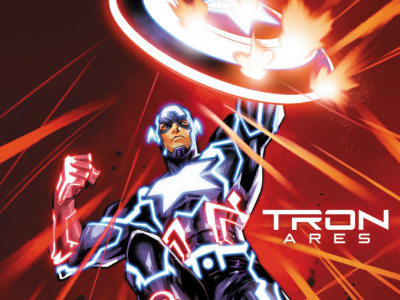Pacific Rim: Uprising earned an estimated $28 million, as it finally ended the five week reign of Black Panther, but it was a lackluster debut for the $155 million, mecha-filled production, and with none of the other four new films contributing much, the total of the top 12 films was down 41.1% from the same frame last year when Beauty and the Beast topped the charts with $90.4 million in its second weekend.
Pacific Rim: Uprising is the sequel to Guillermo Del Toro’s 2013 film, which “almost” broke even ($411 worldwide versus a production cost of $190 million). Uprising, which stars John Boyega (Star Wars: The Force Awakens, etc.), cost a bit less to produce ($155 million), but it also opened weaker in the U.S. than Del Toro’s film ($28 million vs. $37 million). Uprising, which is long on action-packed special effects, but a bit short on narrative, received mediocre reviews (46% positive on review aggregator Rotten Tomatoes), and a mediocre “B” CinemaScore from opening weekend audiences, which were well balanced by age (53% over 25), but skewed heavily male (68%). Caucasians made up 52% of the crowd, followed by Hispanics (20%), and then African-Americans and Asians (both 11%).
Foreign audiences accounted for 75.2% of the revenue for Del Toro’s 2013 Pacific Rim, and Stephen DeKnight’s Pacific Rim: Uprising is going to need even more success outside of North America to get in the black. Uprising did earn $122.4 million overseas this weekend, led by $65 million in China, so it is still possible that foreign markets will be able to make up for what would appear to be a weak run here in North America that is not likely to amount to more than $70 million.
After five weeks at number one, Ryan Coogler’s Black Panther slipped to #2 as it earned $16.65 million to bring its domestic cumulative to $630.9 million. Black Panther is now the number one superhero film in the North American market (not adjusted for inflation) as it soared past Joss Whedon’s Avengers ($623 million). Even when adjusting for rising ticket prices, Black Panther is now #4 (soon to become #3) trailing only Sam Raimi’s Spider-Man ($638 million adjusted), Christopher Nolan’s The Dark Knight ($684 million adjusted), and Whedon’s Avengers ($705 million adjusted).
Globally Black Panther has now earned $1.237 billion, and it has passed Iron Man 3 to become the third biggest global earner in the Marvel Cinematic Universe, trailing just the two Avengers films. Will T’Challa’s appearance in the upcoming Avengers: Infinity War help that superhero team-up film keep up the franchise’s sterling box office record?
Yes the past two weeks have been lackluster at the box office, but still the performance of the religiously-themed I Can Only Imagine, which traces the origin of an extremely popular Christian rock song, is impressive. Finishing #3 for the second week in a row, I Can Only Imagine dropped just 19% as it earned $13.8 million, bringing its 10-day total to $38 million.
The animated Sherlock Gnomes debuted with a disappointing $10.6 million. Spring break vacations over the next few weeks might help, and the film did receive an OK “B+” CinemaScore from opening weekend audiences, but this MGM release will have to demonstrate great “legs” just to break even.
Warner Bros.’ rebooted Tomb Raider finished in fifth as it fell off 56% from its disappointing debut, earning just $10.4 million to bring its North American total to $41.7 million. Internationally the film is doing much better, adding $34 million for an overseas total of $170 million.
Ana DuVernay’s A Wrinkle in Time fell to sixth as it earned $8 million to bring its domestic total to $73.9 million, while Greg Berlanti’s coming-of-age saga Love, Simon dropped just 33.7% as it earned $7.8 million to bring the $17 million production’s domestic total to $23.7 million.
Debuting in eighth place was Sony’s faith-based biopic Paul, Apostle of Christ, which was clearly outshone by I Can Only Imagine. Paul earned just $5 million and will face additional competition from a God Is Not Dead sequel opening next weekend.
Equally disappointing was the debut of the teen romance Midnight Sun, which earned just $4.1 million from over 2,100 theaters. The good news for Midnight Sun is that it did reach its target demographic and spring break is coming up. Midnight Sun earned a solid “A-“ CinemaScore from opening weekend audiences that skewed heavily female (80%) and younger (66% under 25).
Even worse was the debut of the best reviewed new film, Steven Soderbergh’s Unsane, which has a 78% positive rating on Rotten Tomatoes, but earned just $3.9 million from over 2,000 venues, and received a lousy “B-“ CinemaScore from opening weekend crowds that were not pleased with the first feature film ever shot completely on an iPhone 7.
Mention should be made of Wes Anderson’s stop motion-animated Isle of Dogs. Anderson is one of few “art film” directors who has shown the potential to create solid mid-range hits, and Isle of Dogs earned an impressive $1.57 million from just 27 theaters for an average of $51,458 per screen. Fox Searchlight will add 22 theaters next weekend, and Isle of Dogs will go nationwide in mid-April.
Be sure and check back here next week to see if Steven Spielberg’s adaptation of the video game-themed Ready Player One, which had a smash showing at South by Southwest, can revive a box office that has sagged in the wake Black Panther’s record-setting Q1 debut.

'Black Panther' Now the #1 Superhero Film (Unadjusted)
Posted by Tom Flinn on March 25, 2018 @ 6:16 pm CT
MORE COMICS
At AnimeNYC
August 22, 2025
The winners of the 2025 American Manga Awards, organized by AnimeNYC owner LeftField Media and Japan Society, were announced in a ceremony at AnimeNYC in New York on August 21.
From Marvel Comics
August 22, 2025
This October, Marvel Comics celebrates the release of TRON: Ares with new variant covers.
MORE COLUMNS
Column by Jeffrey Dohm-Sanchez
August 21, 2025
ICv2 Managing Editor Jeffrey Dohm-Sanchez continues to take a look at some of the issues revolving around Universes Beyond products.
Column by Rob Salkowitz
August 19, 2025
For Horror Week, columnist Rob Salkowitz asks whether the horror boom can help get us through a moment full of woe and dread.








